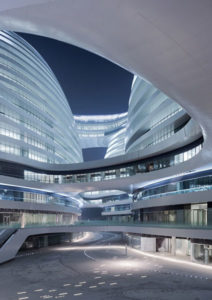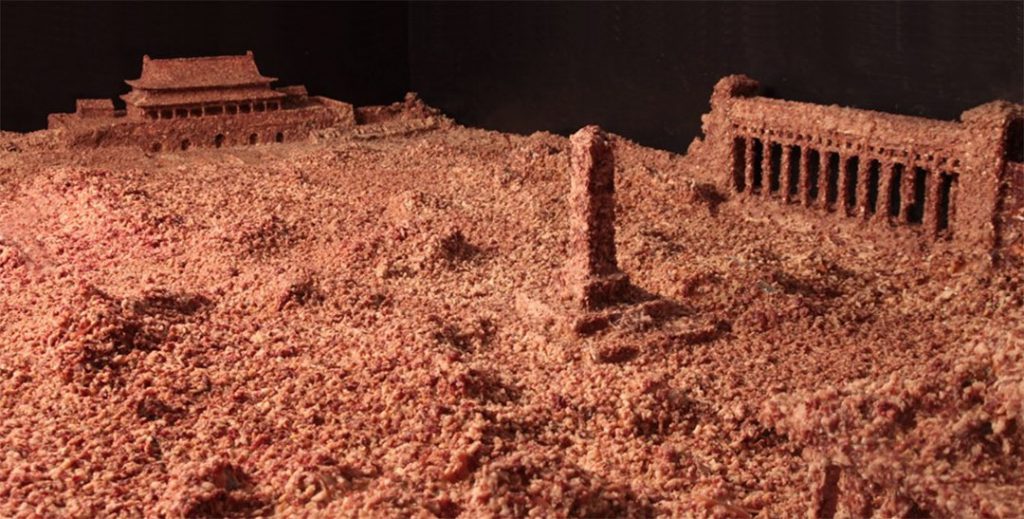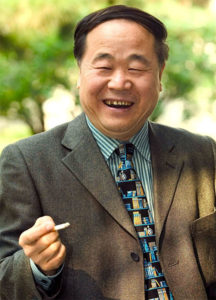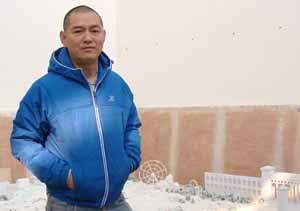‘I AM SO EXCITED THAT I can’t sleep… . The spring for art and literature has truly come!’ Zhao Benshan 赵本山 is a much-loved Chinese actor famous for his comedy. But when the Global Times quoted his ecstatic response to Xi Jinping’s 15 October 2014 speech on the arts, there was no sign that he was joking. Who would dare? Xi’s speech has been promoted and likened to Mao Zedong’s ‘Talks at the Yan’an Forum on Literature and Art’ of 1942, in which Mao demanded that art serve the Party, serve the People and vanquish the enemy. Xi has done the same, extolling the Stalinist idea that writers are engineers of human souls, while also addressing contemporary phenomena such as market influences and popular culture (see Forum ‘Big Daddy Xi on the Arts’, p.174). He has called for Chinese artists to create ‘socialist culture and art’ that is ‘artistically outstanding and morally inspiring’. Art must, he stressed, serve ‘correct’ viewpoints with regard to history, nationality and culture. It must feature, he said, ‘positive energy’.
At the forum, Xi praised two young bloggers for their ‘positive energy’: Zhou Xiaoping 周小平 (over eleven million views) and Hua Qianfang 花千芳 (over 87,000 fans on Weibo). Among Zhou’s writings is a blog post from June 2013 called ‘Please Don’t Be Unworthy of This Age’ 请不要辜负这个时代. A paragraph towards the end of the piece may give some idea of what ‘positive energy’ means:
Zhou Xiaoping, a thirty-three-year-old blogger praised by Xi Jinping for his ‘positive energy’
Source: 1937cn.netI, Zhou Xiaoping, do not deny that China has corrupt officials, prison guards, bad people, bullies and crazy people. In the same way I wouldn’t deny that a beautiful woman has thickened skin on the soles of her feet, snot, bowel movements, bacteria or germs, inflammation of the mouth, swollen lymph glands, or pancreatic juices (what’s more, these things make up no small proportion). But when I see a beautiful woman I still feel delight in my heart and eyes, and I still hope that I can hold her in my arms. If at the moment, you are standing to one side nattering on, saying: ‘You’ve been brainwashed, this beautiful woman is made of the skin on her feet, snot, bowel movements, germs and viruses, inflammation of the mouth, pancreatic juices, intestines, organs and lymph, it’s extremely disgusting, hurry and wake up.’ I honestly don’t know whether I’m blind or you’re mad. If you don’t do anything but natter, at most I’ll just smile. But if one day, someone makes a move to eliminate this ‘harmful beauty’, I will certainly not stand idly by. The reason is very simple: if I failed to act, would I be a man? A man’s greatest virtue is that of guarding and protecting.
Zhao Benshan was only one of a number of major, state-supported artists including the veteran painter Fan Zeng 范曾, who lavished praise on Xi’s speech, much as state-supported artists have done since 1942, whether out of genuine enthusiasm or simply mindful of the price of dissent. (The writer Wang Shiwei
王实味 was the first to pay the ultimate price for dissidence, expelled from the Party in 1942 and beheaded in 1947.)
Xi has expressed specific as well as general views on the arts — for example, he revealed that he hates the kind of ‘weird architecture’ that has come to define China’s modernising cities. ‘Weird architecture’ presumably includes the work of international and Chinese architectural leaders such as Zaha Hadid and Ma Yansong 马岩松 (of MAD Architects) as well as numerous high-concept, low-value knockoffs and buildings designed to look like lotuses, teapots, coins and even a piano and violin. ‘No more,’ said Xi. It’s uncertain what this diktat will mean in practice for projects already contracted or underway — or what the speech as a whole will mean for art, literature and film that is already out there but does not sing along with what the Chinese media and propaganda arms have long promoted as ‘main melody’ 主旋律 (politically on-message) art.

Galaxy Soho is a new office and retail and entertainment complex on the East Second Ring Road in Beijing. It was designed by Zaha Hadid and Ma Yansong of MAD Architects. Xi Jinping has publicly revealed that he does not like the ‘weird architecture’ of China’s modernising cities
Photo: Iwan Baan
China is home, after all, to a flourishing counterculture that since the 1980s and the introduction of the market economy, includes independent visual artists, film makers and others who support themselves outside the state system or have used it cannily to pursue their careers. There are also many other artists working within the system (in the sense that all officially distributed films must pass the censors and published works need to do the same) who have nonetheless managed to make boundary-pushing works. For example, the directorial debut of the rock star Cui Jian 崔健 (whose songs have been banned and unbanned over nearly thirty years) Blue Sky Bones 蓝色骨头, which deals with the Cultural Revolution, sexuality (including homosexuality) and a corrupt media, screened in theatres nationally from October 2014.
To cite another example, Chen Qiufan’s 陈楸帆 first novel The Waste Tide 荒潮, which describes a dystopian near-future where, on an island built from e-waste off the Chinese coast, migrant workers battle capitalist elites and powerful local forces for control, won Best Novel in China’s Nebula Awards 星云奖 in October 2013 and Huadi 花地 Best Work of Science Fiction Award in March 2014, sponsored by Guangzhou’s Yangcheng Evening News 羊城晚报. The Women of China website noted that: ‘The novel paints China as a conflicted nation, powerful enough to convince other countries to accept its ideologies, but not strong enough to pull its population out of poverty’.
Chen Qiufan, who was born in 1981, obliquely addressed the question of Shared Destiny when he wrote that his generation encompasses workers in Foxconn’s factories, princelings ‘who treat luxury as their birth right’, entrepreneurs pursuing dreams of wealth and college graduates who must ‘compete ruthlessly for a single clerical position’. Yet, Chen observes, the Party persists in speaking as though the ‘People’ all share a monolithic Chinese Dream: ‘Between the feeling of individual failure and the conspicuous display of national prosperity,’ Chen writes, ‘lies an unbridgeable chasm.’
How the party-state will address political heresy in the domestic cultural sphere — including how they will deal with ‘globalised’ artists and writers and the import of foreign popular culture — will become clear in the coming year. In the Mao years and through much of the Deng era as well, the authorities accused creative artists whose work offended them of ideological crimes such as ‘counter-revolution’ 反革命, ‘spiritual pollution’ 精神污染 and ‘bourgeois liberalism’ 资产阶级自由化. In more recent times, the party-state has preferred criminal to political charges. These have the potential to smear an artist’s reputation, especially within China itself, punish them financially through fines and tie them up in legal cases they can’t win. An example is how the authorities detained the artist-activist Ai Weiwei 艾未未 from 2011, charged him with tax evasion and put him under continuing surveillance. After the Australian-Chinese artist Guo Jian 郭健 created a diorama of Tiananmen Square smothered in rotting meat to commemorate the twenty-fifth anniversary of the violent suppression of the 1989 Protest Movement, the authorities detained him and then deported him on charges of visa fraud.

Guo Jian created a diorama of Tiananmen Square smothered in rotting meat to commemorate the twenty-fifth anniversary of the 1989 Protest Movement in Beijing. The artwork was not well received by the authorities
Photo: Guo Jian
The consequences are generally more severe for artists with less international clout: in November 2014, for example, the independent film-maker Shen Yongping 沈勇平, who had produced an eight-episode Internet documentary on China’s constitutional governance (posted in April or May 2014 through Weibo) faced trial. Police had warned him during the filming that if he went ahead with it he was going to prison. What they have charged him with, however, is engaging in ‘illegal business activity’. (This came during the last week of October, when state media was singing the praises of the Fourth Plenum under Xi Jinping with its stated focus on rule of law and constitutionalism.)
There is also a third way: in October, police detained thirteen artists in the Beijing ‘artists’ village’ of Songzhuang on charges of ‘creating trouble’: all had indicated support for the pro-democracy protesters in Hong Kong on social media or were planning to attend a poetry reading in solidarity with the protests. (Human rights monitors have reported the arrests of dozens of mainland citizens who have indicated support for the Hong Kong protesters.) Reports in the foreign press at the end of October indicated that police were swarming through the once-relaxed village and that many artists had closed their studios to outsiders.
The artists, for their part, can accept the Party’s leadership and Xi’s guidance in the kind of art they produce, or make the sort of art they consider meaningful and important and risk the consequences, or attempt hitting what’s called ‘graze-edge balls’ 擦边球, named for a play in ping-pong in which the ball grazes the edge of the table — technically still ‘in’ or legal and yet almost impossible to counter. Or, if they have the means, they can send their art overseas.
Chen Qiufan published the essay from which the earlier quotation was taken, translated by his fellow science fiction writer Ken Liu, on the international science fiction and fantasy website Tor.com in May 2014. Writers Murong Xuecun 慕容雪村, Yu Hua 余华 and Yan Lianke 阎连科 (a finalist in the 2013 Man Booker International Prize who became the first Chinese writer to win the Franz Kafka Prize in 2014) are among those who have increasingly turned to international websites, newspapers and journals including The New York Times, to publish essays that cannot appear at home.
Working remotely, Ai Weiwei created a giant, site-specific installation for the infamous former island penitentiary of Alcatraz, in San Francisco Bay. It includes a colourful dragon with Twitter-bird eyes, 175 Lego representations of prisoners of conscience from around the world and a dozen gleaming steel stools individually installed in one of the cells in Cell Block A, into which songs and speeches of protest are played (including Martin Luther King’s 1967 anti-Vietnam War speech and music by the imprisoned Tibetan singer Lolo and Hopi chants representing the Native Americans incarcerated there in the nineteenth century for resisting assimilation). Guo Jian, meanwhile, went to New York in the second half of 2014 to collaborate with the American artist and Iraq War veteran Markus Erikson on an anti-war multimedia installation called Surrender. They asked people all over the world, especially soldiers in uniform, to send photographs of themselves with their hands up in surrender — like Ai Weiwei’s Alcatraz, a rather different vision of Shared Destiny to that of Big Daddy Xi.
Translation: Magic, Realism

Mo Yan was the first Chinese writer resident in China to win the Nobel Prize in Literature in 2012
Source: wb.yunnan.cn
The death of the writer and Nobel Literary Laureate Gabriel Garcia Marquez at the age of eighty-seven on 17 April 2014 triggered an emotional outpouring of tributes in China. The topic even trended at second place for a while on Weibo. One of the first contemporary writers to have his books published in China in translation during the early years of the Reform era, Marquez influenced generations of readers and writers. When Mo Yan 莫言 became the first Chinese writer living in China to receive the Nobel Prize in Literature in 2012 (the exiled Gao Xingjian 高行健 won it in 2000), he acknowledged the Colombian writer’s profound influence on his own work.
Chinese readers typically have access to about 14,000 new foreign titles a year. Yet the number of Chinese titles on the lists of foreign publishers is minute: in 2012, American publishers published sixteen — out of a total of 453 in translation from all non-English languages and 200,000 titles in all. Not surprisingly, it is hard to imagine a Chinese writer having anything comparable to the influence overseas that Marquez has had in China.
International awards and exposure for Chinese writers whose books have been translated into English and other languages, however, including Mo Yan, Yan Lianke 阎连科 and others, have helped to raise the profile of Chinese literary fiction in the non-Chinese-reading world. Chinese writers of genre and other commercial fiction are also beginning to make their mark: translated by Olivia Milburn, the thriller Decoded by the best-selling author Mai Jia 麦家, a former intelligence officer in the PLA, received positive reviews in the UK on publication there in April 2014. Ken Liu is currently translating Chen Qiufan’s The Waste Tide. Global warming, Wikileaks and other issues may well cause readers around the world to recognise in fictional dystopias and intelligence thrillers a genuine sense of Shared Destiny.
Notes
Zhou Xiaoping 周小平, ‘Please Don’t Be Unworthy of This Age’ 请不要辜负这个时代, 14 June 2013, online at: http://blog.sina.com.cn/shuimu
Chen Qiufan, ‘The Torn Generation: Chinese Science Fiction in a Culture in Transition’, translated by Ken Liu, Tor.com, 15 May 2014, online at: http://www.tor.com/blogs/2014/05/the-torn-generation-chinese-science-fiction-in-a-culture-in-transition




